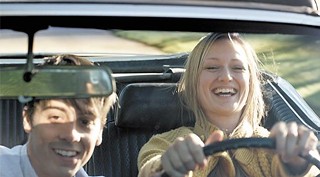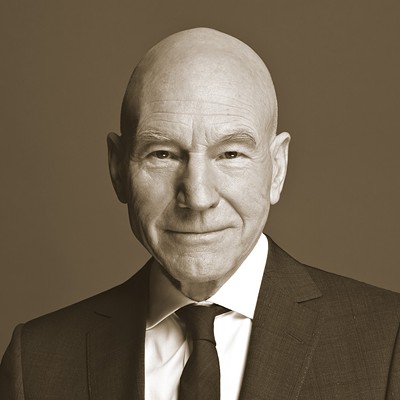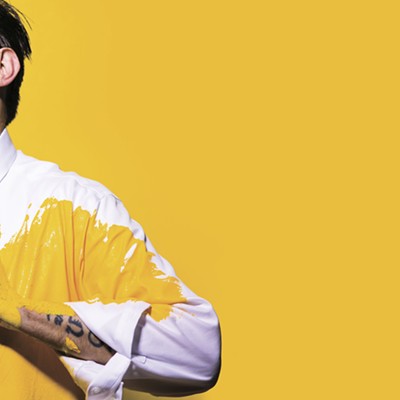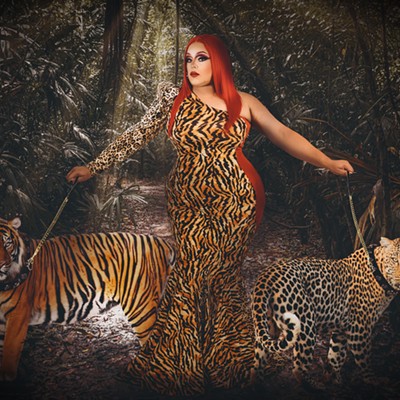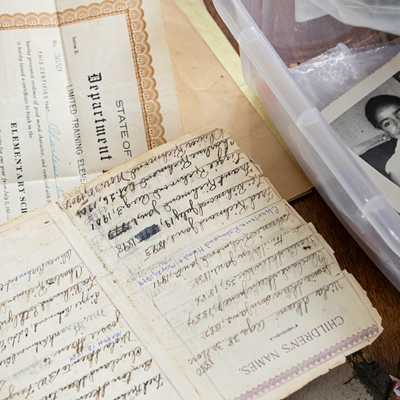For an initial outlay of $24,000 (paid, for the most part, through his credit cards), Edward Burns made his first film, The Brothers McMullen, in 1995. After it took the Grand Jury Prize at Sundance, Fox Searchlight picked up the rights, tacked on a Sarah McLachlan song, and put Burns’ Irish Catholic comic drama into theaters. It grossed more than $10 million.
Burns comes to the Savannah Film Festival this week with a screening of Nice Guy Johnny, his ninth movie.
After McMullen, Burns had a run of mostly–successful independent films, including She’s the One and Sidewalks of New York. Like his hero, Woody Allen, he wrote and directed them all, and assigned himself co–starring roles.
Every once in a while, he’d take an acting job in someone else’s movie – he was a member of Tom Hanks’ unit in Steven Spielberg’s Saving Private Ryan, and played Angelina Jolie’s love interest in Life or Something Like It – but he always returned to the role of auteur, writing and making films about ordinary people in his beloved New York.
In Nice Guy Johnny, Burns plays the fun–loving, freeloading uncle to the title character (Matt Bush), a young sports DJ who’s afraid to follow his dream.
Which, of course, is an issue that Edward Burns can relate to. In fact, he’s still battling to maintain his independence.
The Nice Guy Johnny site says the film is “available everywhere.” But it doesn’t have studio distribution, and it isn’t going into theaters. What’s the deal?
Edward Burns: We’re breaking new ground with a brand new distribution model. My last film, Purple Violets, we released exclusively on iTunes for six or nine months before the DVD. We did this because what’s been happening to the vast majority of indie films that get released are dying in the theater. Everyone has their theories as to why the audience just isn’t there any more for these titles. But that’s the sad reality.
And the average cost is $38 million to market a film for theatrical release. Now obviously the little movies don’t spend anywhere near that, but that gives you an idea of just how much we need to spend to compete in that space. The reality is: You can’t compete! Which is why I think the movies aren’t doing any business.
You’re taking that concept into new areas?
Edward Burns: On this film, we never thought about theatrical. With the Purple Violets experiment with iTunes, we did not hit a home run financially, but we did hit a very solid single. That one pre–dated Apple TV, it pre–dated people watching movies on their phones, on their iPads, on their laptops, so the potential is that much greater. The much bigger part that has changed the whole conversation for these titles is Movies on Demand channels. The fact is that independent films have been doing really robust business there.
On Oct. 26, we go into 42 million homes. Versus four screens in your New York/L.A. release. So right there, the potential upside is so much greater.
And not having distribution is great because now I don’t sell my movies. I license my movies to a company called Film Buff, and they send it out through all of these digital platforms. I still own my titles, and anybody in the music business will tell you how important it is to own your work.
As writer, producer, director and actor, I would imagine it would be nice to think you don’t have to worry so much about marketing and the business end of things.
Edward Burns: The answer would be yes, but it’s unrealistic to think that you can just hand it off. Because, in the past, if you hand it off and walk away, or if you’re not asked to participate, you wind up with a poster that you hate. Or they’re gonna change the title of the movie. Or you end up seeing the DVD box and it looks nothing like the film you made. Now, when you own it, you’re involved in every decision that gets made.
The idea for the film was born out of whether or not to take a job to be a director–for–hire, or to be a writer/director who makes his own films. This is my life’s work, I guess. These are my babies, and I don’t want to hand them over to somebody else. If that means I’ve got to learn how to be a little bit more of a businessman, if that means I’ve got to spend three months figuring out how to sell this movie, or how to get the movie financed, I’m willing to do it because the alternative is just to show up and do a gig for a paycheck. And that’s not why I got excited about the movies.
After your runaway success with The Brothers McMullen, did the world seem wide open to you? Did you think you were going to be the next Scorsese?
Edward Burns: There was talk right after McMullen about the size of the budget I could get for my next film. And I remember saying, at Sundance, “I don’t want to spend more than $3 million. Because I know that at $3 million they’ll give me creative control, up to a point. At $3 million it’s almost impossible for the next film to lose money. And I’ll be able to stay in business.”
I love and adore Scorsese, but in film school I wasn’t dreaming of competing with the guys who make the big spectacles. My hero was Woody Allen. My other hero was Truffaut. I’d sit and watch Godard’s Contempt and love the fact that the second act of the whole movie is two people talking in their apartment. That’s what got me excited about movies. I never dreamed bigger than telling small stories, so I feel like I’m kind of in the place I’d always imagined I’d be in.
I thought it would be easier to raise the money, but talk to any filmmaker. That’s never easy.
Tell me about your decision not to be a director–for–hire.
Edward Burns: It was after Purple Violets, and the agency that I’m no longer with was imagining my having a different type of career. Then suggesting an “open director assignment” – they call them ODAs. “Would you explore that, given how much money you could potentially make?”
Purple Violets was my eighth film, so I thought why not? Why don’t I just check this out? A lot of my peers were doing it.
So I read a bunch of screenplays. There was one in particular I liked enough to say “All right, I’ll give two years of my life to this.” And I almost said yes.
I took that one last weekend to read the script again.
Do I wish I could make that kind of money making my own films? Absolutely. I’d be lying to you if I said otherwise.
However, I just thought “I don’t need to do this yet.” In five years, I might tell you “Here’s the honest truth: I needed the money and that’s why I did it,” or I’ll tell you how excited I was to finally direct a horror film!
I love making these small films. There’s enough of an audience out there that I can still eke out enough of a profit to get to make another one. So that’s what I chose to do.
What was the genesis of the Nice Guy Johnny story?
Edward Burns: I wanted to explore a guy who’s wrestling with his dreams. And the conflicts that arise from that. Inevitably, if you’re going to choose your dream you’re going to disappoint some people in your life. Some might even accuse you of being selfish or self–centered.
That’s when the idea of this guy who’s nice to a fault was born. He’s so self–sacrificing that he’s going to potentially screw up his own future.
The mentor character that I created for myself, Uncle Terry, is a bit of a selfish, lying, conniving, cheating sort of a character. I wanted to create the antithesis of Johnny; maybe he needs a little bit of selfishness in his life.
Another big part of it was the character of Brooke, the other sort of mentor–slash–love interest in his life. Since I was playing with this notion of dreams, I wanted to create that female fantasy character ... quite honestly, she came from a lyric in a Springsteen song, “Jungleland.” Barefoot girl sitting on the hood of a Dodge, drinking warm beer in the soft summer rain. Whatever she represented, that promise, from when I was a teenager through my 20s, how that girl – had I met her in that parking lot – could change my life in a weekend or in a day, is exactly what I wanted to create.
Are you, yourself, closer to Johnny or to Terry?
Edward Burns: I think I’m probably closer to Brooke! She’s a little bit more of the realist.
Writing, acting or directing – which is closest to your heart?
Edward Burns: It’s no contest. Writing, by far. I go to bed with a note pad next to my bed, to jot down notes. I wake up thinking about the thing I’m writing, or another script I want to write. It is the thing that consumes me. I don’t think about writing novels. I think about writing movies.
Nice Guy Johnny screens at 9:30 p.m. Monday, Nov. 1, Trustees Theater
Followed by a Q&A with Edward Burns

